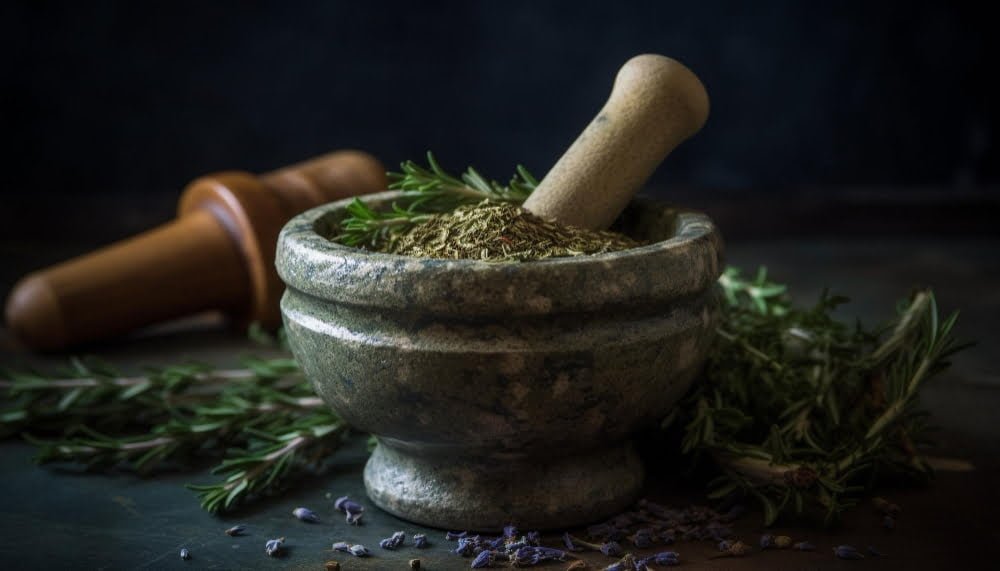The World Health Organization (WHO) inaugurated its inaugural traditional medicine summit on Thursday, aiming to accumulate substantiated evidence and data to enable the secure and effective deployment of these treatments.
The UN health agency underscored that traditional medicines serve as a “first point of recourse for millions globally.”
Discussions, convened in India, united policymakers and scholars in an effort to “galvanize political commitment and evidence-driven action” in their favor.
In inaugurating the summit, WHO Chief Tedros Adhanom Ghebreyesus affirmed, “WHO is dedicated to accumulating evidence and data to inform policies, standards, and regulations for the secure, cost-effective, and equitable use of traditional medicine.”
Tedros highlighted traditional medicine’s potential to bridge “healthcare access gaps.” However, he emphasized that its worth lies in its “appropriate, effective, and, above all, safe application, grounded in the most recent scientific evidence.”
Challenges and Opportunities in Traditional Medicine
Nonetheless, the WHO has encountered online criticism, with skeptics accusing it of endorsing pseudoscience.
This scrutiny followed a social media post where the organization queried followers about their usage of various treatments, including homeopathy and naturopathy.
The WHO later acknowledged these concerns, conceding that its “message could have been better articulated.”
Simultaneous to the two-day WHO Traditional Medicine Global Summit, G20 health ministers convened in Gandhinagar, India, to discuss pertinent health matters.
Nobel laureate and Chair of the WHO Science Council, Harold Varmus, addressed the summit virtually, emphasizing the importance of comprehending the constituents and efficacy of traditional medicines. He stressed the need to discern which remedies hold efficacy and which do not.
The summit, slated to be a recurring event, follows the establishment of the WHO Global Centre for Traditional Medicine in India’s Gujarat state last year.
Balancing Regulation and Efficacy
While traditional medicines enjoy widespread use in certain regions, they face substantial criticism. The UN health agency defines traditional medicine as the knowledge, skills, and practices accumulated over time to safeguard health and address physical and mental ailments.
However, many traditional treatments lack proven scientific validity. Furthermore, this industry has been criticized for contributing to the trade in endangered species, including tigers, rhinos, and pangolins, thereby endangering entire species.
During the Covid-19 pandemic, the use of homemade remedies surged, including a green herbal concoction based on Artemisia promoted by Madagascar’s president as a remedy.
This use drew skepticism from many medical professionals, even though the plant is proven effective in malaria treatment.
While traditional medicine has an esteemed history in China, European medical authorities have previously demanded that it be subject to the same regulatory scrutiny as conventional medical practices.
John Reeder, WHO’s research chief, asserted, “Advancing the scientific understanding of traditional medicine should adhere to the same exacting standards applied in other health fields.”
Out of the WHO’s 194 member states, 170 acknowledged employing traditional and complementary medicine since 2018.
However, only 124 reported having laws or regulations governing herbal medicines, and only half had a national policy concerning these therapies.
The WHO stressed that the term “natural” doesn’t inherently imply safety, and centuries of usage do not guarantee efficacy.
Hence, the agency emphasized the application of rigorous scientific methods and processes to furnish the necessary evidence.
Approximately 40 percent of approved pharmaceutical products currently in use derive from a “natural product basis,” according to the WHO.
It cited examples of “landmark drugs” stemming from traditional medicine, such as aspirin, which draws on formulations rooted in willow tree bark.
Source: AFP


